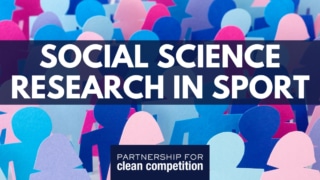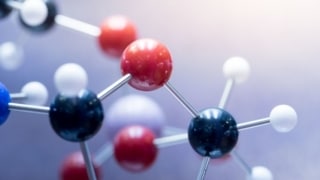FOR IMMEDIATE RELEASE
October 27, 2014
Michael Pearlmutter
Partnership for Clean Competition
Executive Director
719.866.3307
mpearlmutter@cleancompetition.org
COLORADO SPRINGS, Colo. – Important new peer-reviewed research conducted by Getachew A. Woldemariam and Dr. Anthony W. Butch may help increase the ability to detect athletes who are taking human chorionic gonadotropin (hCG) as a doping substance to enhance athletic performance. The research, which was published in the August issue of Clinical Chemistry, was funded by the Partnership for Clean Competition (PCC) in order to further advance the ability to detect the use of hCG, which stimulates testosterone production and is a banned substance on the World Anti-Doping Agency list.
Through their research, Woldemariam and Butch developed ways to specifically measure several forms of hCG in urine. While urinary hCG is a marker of pregnancy in females, hCG is used by men to increase testosterone or restore testosterone production after doping with synthetic anabolic steroids. By specifically measuring the various forms of hCG in male urine, the new test can better detect athletes who are taking hCG as a doping substance to enhance performance. In addition, the test should allow a definitive characterization of familial hCG syndrome.
“This immunoextraction and tandem mass spectrometry method for measuring the major isoforms of chorionic gonadotropin in urine is a significant improvement over currently available immunoassays,” says Butch. “The method has superior analytical specificity and will greatly enhance the ability to detect male athletes who dope with various forms of chorionic gonadotropin.”
According to Dr. Larry Bowers, PCC Scientific Advisory Board Chair and USADA Chief Science Officer, “The measurement of male urinary hCG in anti-doping has been an area of concern for many years. This important research has not only developed a sensitive and specific LC-MS/MS assay which will help us to detect the various forms of hCG and those who use it to cheat their competitors, but Woldemariam and Butch have greatly added to our knowledge about hCG excretion after administration. With the specificity of the LC-MS/MS method, it should be possible to provide additional information about the concentration of intact hCG in male urine samples who have not doped and therefore increase the sensitivity of the test.”
Based on the results of this study, the World Anti-Doping Agency (WADA) is in the process of developing new guidelines for WADA-accredited labs to conduct tests.
About AACC
Dedicated to achieving better health through laboratory medicine, the American Association for Clinical Chemistry (AACC) brings together more than 50,000 clinical laboratory professionals, physicians, research scientists, and business leaders from around the world focused on clinical chemistry, molecular diagnostics, mass spectrometry, translational medicine, lab management, and other areas of breaking laboratory science. Since 1948, AACC has worked to advance the common interests of the field, providing programs that advance scientific collaboration, knowledge, expertise, and innovation. For more information, visit www.aacc.org.
Clinical Chemistry is the leading international journal of clinical laboratory science, providing 2,000 pages per year of peer-reviewed papers that advance the science of the field. With an impact factor of 7.9, Clinical Chemistry covers everything from molecular diagnostics to laboratory management.
About the Partnership for Clean Competition
The Partnership for Clean Competition is an innovative research collaborative founded in 2008 as a 501(c)(3) non-profit public charity by the United States Olympic Committee, United States Anti-Doping Agency, Major League Baseball and the National Football League. Every day, the PCC acts to protect the integrity of sport and public health by engaging and supporting the world’s top scientists and innovators in high-quality anti-doping research and development. The PCC also facilitates adoption of these methods into the World Anti-Doping Agency-accredited laboratories. The PCC aspires to help generate the world’s most influential, effective and coveted methods and resources for detecting and deterring the use of performance enhancing substances by all athletes in all sports at all levels. Through this work, the PCC demonstrates the value of science, collaboration and innovation related to doping control in sport and ensure the benefits of sport participation. For more information, visitCleanCompetition.org.



